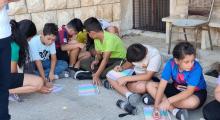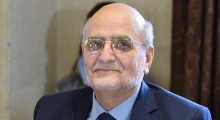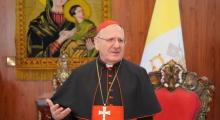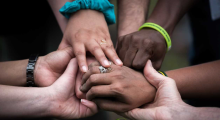Issued by the Catholic Center for Studies and Media - Jordan. Editor-in-chief Fr. Rif'at Bader - موقع أبونا abouna.org
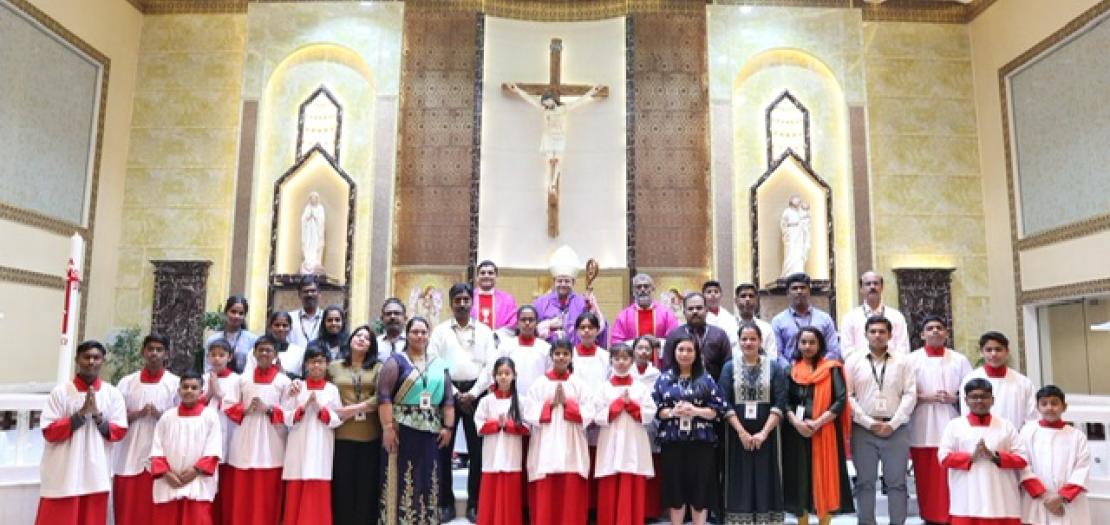
The announcement, made at the end of February, of "full" official relations between the Holy See and Muscat is "very positive news", at the base of which there is a "bond" that could be "enriching for both" , but above all for "the Church itself" present in Oman. This is what Msg. Paolo Martinelli, apostolic vicar of southern Arabia (United Arab Emirates, Oman and Yemen), commenting on the full diplomatic relations which will soon lead to the opening of a nunciature and an embassy in the respective territories. "These official relations - continues the prelate - will in fact allow for greater cooperation initiatives" between the parties in an atmosphere that is already one of great trust and collaboration.
Recounting the life of the local community, the vicar of Arabia speaks of a "Church eager to contribute to the good of society" and, unlike other more complicated realities in the Gulf [read Saudi Arabia, where only Sunni Islam is in force], “already now we enjoy freedom of worship”. Furthermore, official relations with the Holy See "could open up - he adds - greater possibilities for collaboration" also in terms of priests, who are now 12 in the area. "We hope - he hopes - to be able to have some more in the future".
Among the other objectives of Msgr. Martinelli there is also "the possibility of having some female communities of consecrated life". A presence, he warns, "very significant both for the faithful and for society" for the contribution it can provide in many fields. And unity with religious freedom "which we already have, it would be nice to be able to make a positive contribution" also "through social and educational initiatives" as happens in many situations where the Church is present and is active on a pastoral level.
Speaking of the Catholic community in Oman, the vicar of Arabia defines it as having "substantially similar characteristics to that of the United Arab Emirates", although the faithful are "present in good numbers" but are currently "less numerous" than in the neighboring country. Even in the Sultanate it is a "Church of migrants" because, despite being tormented by a disastrous and forgotten war, only the Catholic community in Yemen is made up of "natives". "The number of faithful in Oman - he continues - is highly variable" and is linked to "job opportunities. For example, the time of the pandemic [of Covid-19] has forced many to leave the territory” precisely because of the lack of employment.
There are four parishes in the sultanate: two in Muscat, the capital, one in Salalah and one in Sohar. It presents a great variety at the community level, explains the prelate, because it is "made up of people of different nations, languages, cultures and rites" united however by a great desire to "participate" in the functions, in which they are numerous and "in their commitment various parish works, in ecclesial associations and movements".
To grasp the strategic value of Oman in the region, at the level of the Church, the story of the kidnapping by a jihadist group in Aden, Yemen, of the Indian Salesian Fr. Tom Uzhunnalil , freed after some time thanks to the mediation of Muscat. The sultanate is also fundamental in the balance between Saudi Arabia and Iran, the two great regional powers divided on an economic, religious and ideological level, representing the reference par excellence of the Sunni and Shiite world.
“Relationships with local political leaders - underlines mgr. Martinelli - are currently very good" and relations are marked by "kindness" and "they are ready to help us when we have some need". Finally, he wants to underline the role of Pope Francis and his "attention" to the Arab region in strengthening ties in the Gulf and with the Muslim world, starting with his trips to Abu Dhabi and Bahrain. "His incessant promotion of inter-religious dialogue and peace - he concludes - played a role in reaching this historic moment in which Oman and the Holy See establish stable diplomatic relations".


